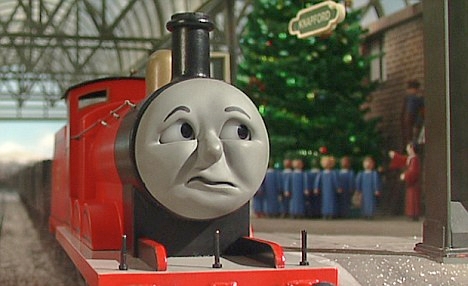LIVERPOOL and other northern cities will not be any better off if HS2 is built, the influential Institute of Economic Affairs warns today as MPs gather to give the £50bn project the green light.
And one of the reasons is the high number of unskilled people in places like Merseyside. It seems to be suggesting not only is grim up north, they’re also thick up north.
Mayor Joe Anderson and most, if not all, of Merseyside’s MPs are backing HS2, the high speed line that promises to be a case of Dick Whittington in reverse.
Trains heading our way at 250mph will result in gold paving for the streets of Liverpool as people and businesses in the overcrowded London and South East metropolis realise the north is the place to be. Or so they say.
Is the support of Liverpool city region’s political heavyweights wishful thinking? It is not even clear at the moment whether HS2 will reach Liverpool ever, let alone in some distant decades into the future.
Critics, especially of the likely impact to the north, say we should be careful what we wish for.
The Institute of Economic Affairs points to the great things that were promised for Kent in the wake of HS1.
It uses figures showing employment figures along the HS1 corridor were worse once the line opened.
The think tank also uses Doncaster as an example of a place that was led to expect great things with the arrival of 125mph expresses on the North East line. But nothing has changed.
One of the reasons for this, it says, is partly because of the high level of unqualified people in the east Yorkshire city, demonstrated by its place as 42nd worst in a national index of socially deprived areas.
Worryingly, in that same index, Liverpool is in first place.
The number of unqualified people in our neck of the woods seems too high to attract the likely jobs of the future. Figures quoted give the numbers of people with qualifications at or above NCQ Level 4. In Doncaster it is 23 per cent of the population, Liverpool is 27.7 per cent, compared to a UK average of over 35per cent of people qualified to NVQ4 or above. Manchester’s level, at just under 39 per cent, is higher than the UK average.
“Local populations characterised by low skills, poor education and a lack of entrepreneurship may struggle to exploit the business opportunities offered by improved transport links. Such constraints may also deter firms from expanding or relocating in many areas, says the IEA report’s author, Richard Wellings.
He adds: “Politicians and officials therefore risk misleading the public by claiming HS2 will tackle the North-South divide, rebalance the economy and turn northern cities into world leaders.”
The current plan is to build phase one between London and Birmingham. Phase two would see HS2 extended to the north, dividing north of Crewe to new HS2 links into the centres of Manchester and Leeds. There will be an HS2 station at the front door of Manchester Airport (not good news for Liverpool JLA).
Liverpool, as things stand, would see HS2 trains from London thundering as far as north as Staffordshire, then switching to the current West Coast line for the scenic, slower route to Lime Street.
That would mean less than half an hour shaved off the journey time, taking it to 1 hr 36 mins, whereas the direct line into Manchester would halve the journey time between Piccadilly and Euston to just over an hour.
The campaign group 20 More Miles, backed by Lord Derby, is pressing for a direct HS2 link into Liverpool, using either an expanded Lime Street Station or re-building the old Liverpool Exchange Station. That option could cut Runcorn station out of the loop altogether.
There’s no doubt north-south rail links need an overhaul, but whether a £50bn super line is the answer depends on which side of the track you sit on.
Mr Wellings said that instead of HS2 the government should improve local and regional links in the north.
For longer distance travel, he said the existing West Coast Main Line could be upgraded "at relatively low cost... a fraction of the cost of HS2".












